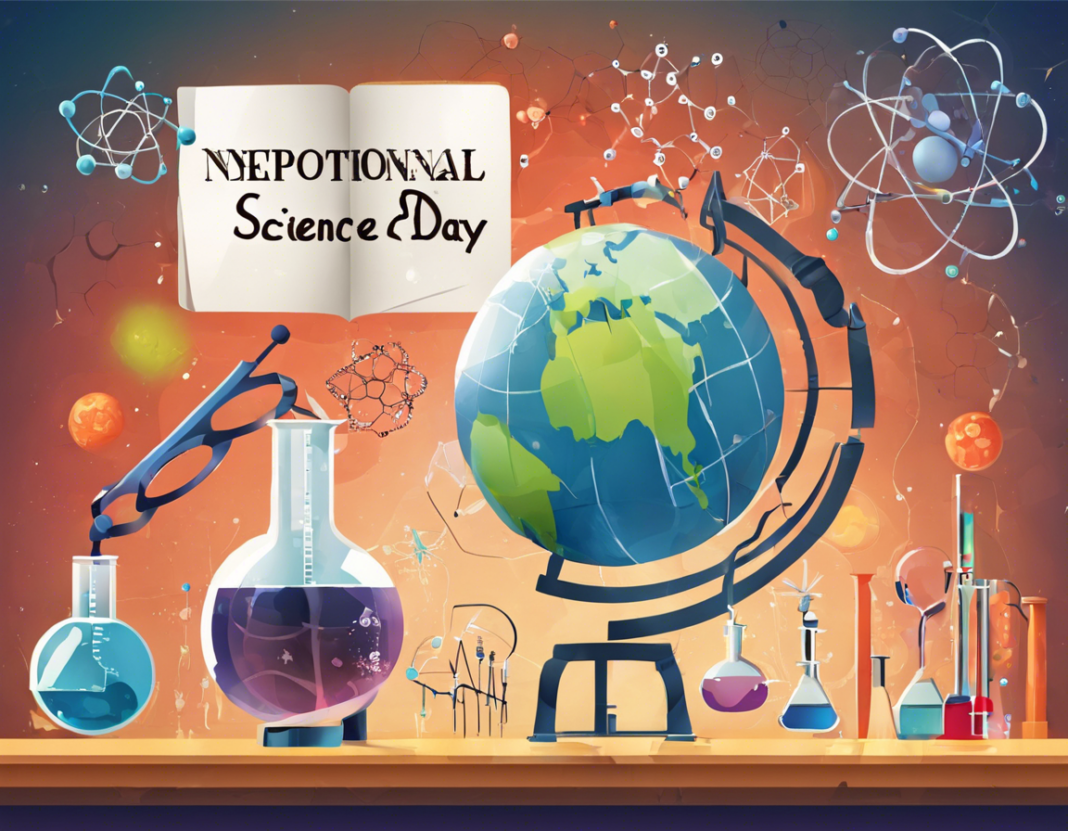Introduction
Every year on February 28th, India celebrates National Science Day to commemorate the discovery of the Raman Effect by Sir C.V. Raman in 1928. This day is dedicated to acknowledging the contributions of scientists, promoting scientific tempered in society, and fostering an interest in science among the masses. National Science Day serves as a reminder of the importance of scientific research and innovation in our daily lives and encourages young minds to explore the wonders of science.
The Significance of National Science Day
National Science Day is not just another day on the calendar; it holds significant importance in acknowledging the role of science and technology in shaping the world as we know it. It is a day to celebrate scientific discoveries, advancements, and breakthroughs that have revolutionized various fields and improved the quality of human life.
Themes of National Science Day
Each year, National Science Day is celebrated with a specific theme that highlights a particular aspect of science and technology. Themes may vary from year to year, focusing on areas such as sustainable development, scientific solutions to societal challenges, women in science, climate change, and more. These themes provide a framework for organizing events, seminars, workshops, and exhibitions that promote scientific awareness and education.
Importance of Science Education
One of the key objectives of National Science Day is to emphasize the importance of science education at all levels. Science education plays a crucial role in nurturing young minds, fostering a spirit of inquiry and curiosity, and preparing the next generation of scientists, researchers, and innovators. By promoting science education, we can build a strong foundation for a scientifically literate society that can address complex challenges and drive progress.
Promoting Scientific Research and Innovation
National Science Day also serves as a platform for promoting scientific research and innovation in various fields. It highlights the work of scientists, researchers, and institutions that are pushing the boundaries of knowledge and developing cutting-edge technologies. By showcasing innovative projects and discoveries, National Science Day inspires young minds to pursue careers in science and contribute to the advancement of society.
Activities and Celebrations
On National Science Day, various activities and celebrations take place across the country to engage people of all ages in the world of science. Schools, colleges, universities, research institutions, and scientific organizations organize lectures, seminars, science fairs, hands-on experiments, quiz competitions, and exhibitions to showcase the wonders of science. These events aim to make science more accessible, interactive, and fun for everyone.
The Role of Scientists and Science Communicators
Scientists and science communicators play a crucial role in spreading awareness about the importance of science and technology. Through their research, publications, talks, and outreach activities, they bridge the gap between the scientific community and the general public. National Science Day provides an opportunity for scientists and science communicators to engage with a wider audience, share their knowledge and passion for science, and inspire future generations.
Challenges and Opportunities in Science
While we celebrate the achievements of science on National Science Day, it is also essential to acknowledge the challenges and opportunities that lie ahead. From climate change and pandemics to technological disruptions and ethical dilemmas, the world is facing complex issues that require scientific solutions. By investing in research, fostering innovation, and promoting collaboration, we can address these challenges and create a more sustainable and equitable future.
Conclusion
National Science Day is a day of celebration, reflection, and inspiration. It reminds us of the transformative power of science and the endless possibilities that lie within the realm of discovery. By recognizing the contributions of scientists, promoting science education, and fostering a culture of innovation, we can harness the wonders of science to build a better world for future generations.
Frequently Asked Questions (FAQs)
- What is the Raman Effect, and why is it significant?
-
The Raman Effect refers to the scattering of light when it passes through a transparent substance. Sir C.V. Raman’s discovery of this phenomenon in 1928 proved that light can change its wavelength when it interacts with molecules, leading to groundbreaking advancements in the field of spectroscopy.
-
How can I get involved in National Science Day celebrations?
-
You can participate in local events, workshops, and science fairs organized by schools, colleges, and scientific institutions. Additionally, you can follow online webinars, read scientific articles, and engage with science communicators on social media to stay informed and inspired.
-
What are some ways to promote science education in my community?
-
You can volunteer at schools, libraries, or community centers to conduct science demonstrations, mentor students, or organize science clubs. Hosting science talks, film screenings, or hands-on workshops can also help engage people of all ages in learning about science.
-
How can I support scientific research and innovation as a non-scientist?
-
You can advocate for increased funding for scientific research, support science-based policies, and participate in citizen science projects that contribute to ongoing research efforts. By staying informed about scientific developments and promoting evidence-based decision-making, you can be a champion for science in your community.
-
What are some emerging trends in science and technology to watch for in the future?
- Trends such as artificial intelligence, quantum computing, nanotechnology, genetic engineering, and sustainable energy are shaping the future of science and technology. Keep an eye on developments in these areas and explore how they can impact society, economy, and the environment in the years to come.









